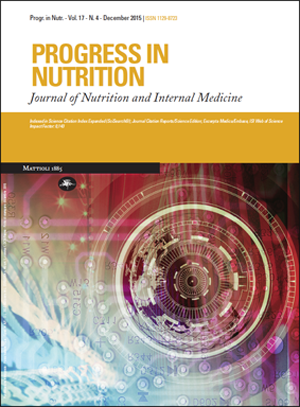Inflammatory Bowel Disease (IBD) in pregnancy: analysis of the possible effects of the disease on the fetus and the newborn and therapeutic approaches
Keywords:
Intestinal Bowel Diseases, ulcerative colitis, Crohn disease, pregnancyAbstract
The Inflammatory Bowel Diseases are a group of inflammatory diseases characterized by the presence of chronic inflammation, in the absence of infectious etiology. The two most well-known diseases in this group are: Crohn’s disease (CD) and Ulcerative Colitis (UC). In cases where it is not possible to distinguish between CD and UC, it is called Indeterminate Colitis. Inflammatory Bowel Diseases (IBD) can affect women pregnant. The causes of IBD are unknown, and the clinical course of the disease is characterized by phases of activity and remission. UC is a chronic inflammation of the mucosa of the colon and involving predominantly the left colon and rectum. It is associated with presence of blood and mucus in the stool, diarrhea and anemia. Characteristically, CD involves entire gastrointestinal tract, from the mouth to the anus. In CD, the inflammatory infiltrate involves the entire intestinal wall. Clinically manifested by abdominal pain, diarrhea, loss of appetite and weight loss. The complications are stenosis , fistulas, abscesses, and perianal involvement. In IBD TNF-alpha and proinflammatory cytokines are overexpressed. The analysis of the scientific literature shows that fertility, in pregnant women suffering from IBD, is preserved. It shows slightly reduced for CD and ileo-anal pouch. Women with active disease at the time of conception have an increased risk of spontaneous abortion, preterm birth, with low birth weight and congenital malformations of the fetus. The indications for surgical treatment are the same as for non-pregnant women. The inactive disease or ileo-anal pouch is not a contraindication to spontaneous vaginal delivery, as is happens in the case of active colitis or perirectal fistulas or rectovaginal fistulas. Safe drugs during pregnancy are: 5-aminosalicylic acid (5-ASA), steroids, 6-mercaptopurine (6MP)/Azathioprine (AZA) and Infliximab. Contraindicated drugs are Methotrexate and Thalidomide. In conclusion, the expectations about pregnancy, in women affected of IBD, is similar to the general population, especially if the conception occurs in inactive phase of the disease.Downloads
Published
Issue
Section
License
This is an Open Access article distributed under the terms of the Creative Commons Attribution License (https://creativecommons.org/licenses/by-nc/4.0) which permits unrestricted use, distribution, and reproduction in any medium, provided the original work is properly cited.
Transfer of Copyright and Permission to Reproduce Parts of Published Papers.
Authors retain the copyright for their published work. No formal permission will be required to reproduce parts (tables or illustrations) of published papers, provided the source is quoted appropriately and reproduction has no commercial intent. Reproductions with commercial intent will require written permission and payment of royalties.

This work is licensed under a Creative Commons Attribution-NonCommercial 4.0 International License.


